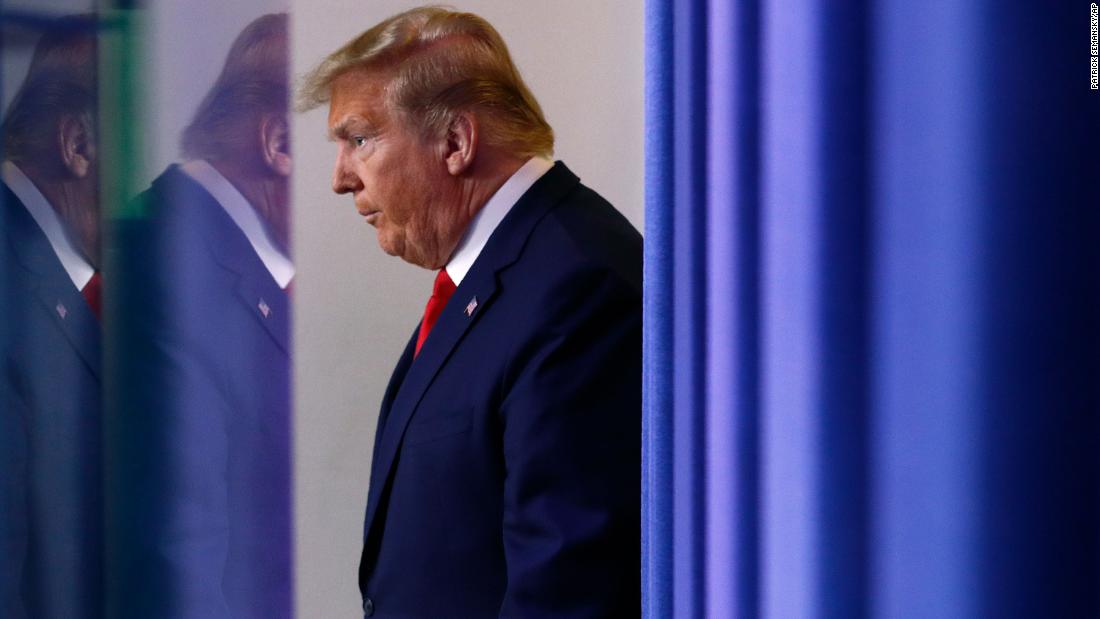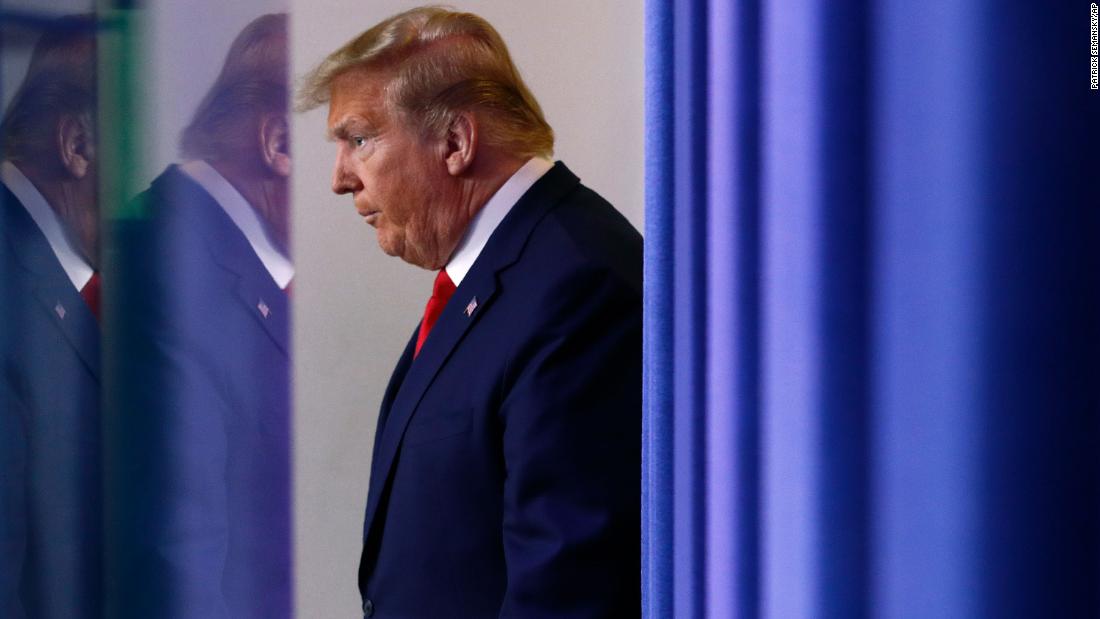[ad_1]

“Our testing is expanding very rapidly by millions and millions of people,” Trump said Sunday night during the coronavirus task force briefing. It was unclear why the President cited that number since the US is only testing about 150,000 people each day.
A day after he lashed out at governors, the President said he was working very well with governors and that he wanted to help them in a more robust way. But he said the federal government cannot be responsible for testing in each community.
“The governors wanted to have total control over the opening of their states. But now they want to have us, the federal government, do the testing,” Trump said. “Testing is local. You can’t have it both ways. Testing is a local thing. It’s very important. It’s great. But it’s a local thing. And we are going to get it done to a level in a very short period of time. All the swabs are coming in, all the necessary materials. A lot of them are already there, but a lot of people don’t know that yet.”
Trump also addressed the concerns of governors about the lack of supplies needed for the tests by holding up one of the cotton swabs that is used in the test and comparing it to a Q-tip, while acknowledging that it is more complicated.
He noted that the administration has sent out more than 5 million nasal swabs, but said some states “don’t know where they are.”
“The swabs — that’s easy,” Trump continued. “We have them coming in by the tens of millions.” He said the nation will end up with so many swabs “you won’t know what to do with them.”
Trump said he plans to use the Defense Production Act to ramp up production of swabs, a critical component of the tests that has been in short supply in many states across the country.
Trump said the administration is finalizing a deal with a company that was going to convert its plant to produce 10 million swabs per month and use his powers under the act to force another company to match that production so the nation will have access to 20 million additional swabs per month.
Two people familiar with the decision told CNN that company is Puritan Medical Products, which is based in Maine. It is known for making “flocked swabs,” which it says are better at collecting specimens than others.
Trump said the administration had experienced “difficulty” with the company, but did not elaborate further. Puritan did not immediately respond to CNN’s request for comment.
Relationship with governors
Trump announced that Vice President Mike Pence will call the nation’s governors from the Federal Emergency Management Agency’s headquarters to discuss coronavirus testing on Monday, and what they can do “to develop locally tailored testing strategies.”
Many are now arguing that the federal government must help to sort out the issues in the supply chain that have prevented states from being able to get the critical ingredients they need to conduct the tests, including swabs, the viral transport medium need to carry the specimens and chemical reagent, which is used to help determine the diagnosis.
On CNN’s State of the Union, Maryland Gov. Larry Hogan, a Republican, said the lack of testing is the number one problem in America and “has been since the beginning of the crisis.”
“The administration, I think, is trying to ramp up testing. They are doing some things with respect to private labs,” Hogan told CNN’s Jake Tapper. “But to try and push this off to say that the governors have plenty of testing and they should just get to work on testing — somehow we aren’t doing our job — is just absolutely false.”
On NBC’s “Meet the Press” Sunday, Ohio Gov. Mike DeWine, also a Republican, said he could probably double or even triple testing virtually overnight “if the FDA would prioritize companies that are putting a slightly different formula together for the extraction reagent kit.”
“We have a shortage, worldwide shortage, of some of the materials that go into this,” DeWine told NBC’s Chuck Todd. “So, we really need help — if anybody in the FDA is watching, this would really take our, take our capacity up, literally Chuck, overnight.”
New York Democratic Gov. Andrew Cuomo warned on Sunday that if his state were to open businesses too quickly, the cases would accelerate again instead of that number going down.
“We apex, we plateaued, it’s coming down the other side. That is good news,” Cuomo said Sunday. “So we exhale, we can control the beast — yes — but the beast is still alive. We did not kill the beast. And the beast can rise up again.”
Even when some businesses are allowed to reopen at an undetermined date in the future, he said state officials will be closely monitoring the infection and hospitalization rates.
If the infection begins to spread again, “you can go right back to where you were in one week’s time,” Cuomo said. “And if we went through all of this and lost all of these people and forced essential workers and hospital workers to do unbelievable tasks to get us through this crisis — and we recreate the crisis, then shame on us.”
Small business package negotiations
“We are very close to a deal. I can’t tell you whether we’re going to get the deal or not,” Trump said. “We want to take care of our workers we want to take care of our small companies.”
“We are also looking at helping our hospitals and our rural hospitals who have been hurt very badly,” he said. “The rural hospitals for a long time have not been treated properly. We are looking to help them and beyond.”
“I think you will have a nice answer tomorrow,” Trump said about the prospect of a deal.
This is a developing story and will be updated.
Nicky Robertson and Kaitlin Collins contributed to this report.
[ad_2]
Source link

